143: My Trick to Fight Hyperbolic Discounting, Do You Live in the Past?, Amazon's Bert & Ernie Robots, Stripe Tender & Shopify, Nvidia + ARM, Precision vs Accuracy, and René Girard
"What have I done for myself lately?"
Contrary to general belief, an artist is never ahead of his time but most people are far behind theirs.
—Edgard Varèse, Composer
(Varèse thought that "to stubbornly conditioned ears, anything new in music has always been called noise", and he posed the question, "what is music but organized noises?"
Varèse saw potential in using electronic media for sound production [in the 1930s], and his use of new instruments and electronic resources led to his being known as the "Father of Electronic Music")
⏳ A good way to think about concepts like hyperbolic discounting and sunk costs is to think in terms of past-me 👨🌾 and future-me 👨🚀.
Rather than think of yourself as a constant in the story you’re spinning in your head, split yourself into three people. It’s past-me 👨🌾 sending stuff forward to present-me 🤪, and present-me 🤪 sending stuff to future-me 👨🚀.
The great conveyor belt of time! 🛤
To me, that makes it easier to form the habit of thinking differently about the stuff I’m sending forward (as the current past-me 👨🌾 to future-me 👨🚀, if you follow).
If I think about things through the lens of present-me 🤪, it’s easy to overload future-me 👨🚀 because of hyperbolic discounting; you can’t imagine the pain of any task or commitment well when it’s far off in the distance of time.
But if you know that, on average, you make errors consistently in one direction, you may not be able to stop the errors from happening, but you may be able to figure out a mechanism to shift things by about the same amount in the opposite direction (assuming a 1D axis — it can be more complex than that).
So to calibrate for that discount, I like to adjust things by imagining that future-me 👨🚀 is busier than I am, and more reticent about things generally, so I have to be extra careful with what I sign him up for.
For sunk-costs, I feel it’s easier to let go and move on when you realize something was a mistake when you can chalk it up to a different person — past-me 👨🌾 — making a mistake. Present-me 🤪 isn’t tied by what this dumb character 👨🌾 did, and has to do the best that he can from his starting point in the present.
…
Speaking of past-me 👨🌾: Sometimes I feel like I'm coasting on what my past self did.
The books he read, the investments he made, the habits he took up, the relationships he built...
What have I done for myself lately? 🤔
Gotta step up my game and make future-me proud! 👨🚀
😔 🪦 I wonder how many WWI soldiers who died during that war had sons that died on the exact same battlefield during WWII.
🛀 There's the real internet, and the summer internet.
➡️ Reader John Lee sent an interesting email on what I wrote in the intro of edition #142, about why it sometimes feels better to save a few bucks on some consumer product than to make a lot more money on an investment:
The above is human nature, but I suspect at least some of this is a product of our historical circumstances. I grew up as a poor immigrant, where saving pennies mattered a lot. I am financially better off now, but habits (and values?) of our youth become hard-wired. So with respect to things such as groceries, utilities, I *still* feel good saving pennies.
As a youth, however, I had no real exposure to fine wines or high end restaurants. Those were only fantasies. Thus, as an adult, I feel very little price sensitivity to menu items or high end cabernets. I might spend an hour on line to save $10 on some electronic gadget (SMH), but I won't think twice about dropping an extra $100 on wine or the chef's special.
The small decisions of today at one point were large decisions historically. That explains at least some of your question above.
I think that’s a good insight. I’m sure there’s some of that for me too.
I didn’t grow up super poor, but far from rich either.
I’m certain I was heavily imprinted by the fact that I always valued control of my time very heavily, so as a kid, I mostly avoided getting typical teenager jobs in favor of doing whatever I wanted to all day.
To do that, I became really good at spending no money and saving every penny I got from any source (allowance, gifts, some odds jobs I did here and there, but always as one-offs and never ongoing for long), and just accepting that I wouldn’t have stuff my friends had (gaming consoles, cars, whatever).
I was a big music fan, so I saved every penny for CDs. When I went to a restaurant with my friends, they all ate something, and I often sat with them without eating anything.
I figured a meal that tastes good for a few minutes isn’t worth what I could spend on an album that I’ll enjoy for years.
I didn’t know it at the time, but I think that was really good training for independent thinking, delayed gratification (leaving that marshmallow alone), not caring what others think, etc. All very useful skills that more people should develop.
🎬 A good taste-test for me is people who don't notice much quality difference between Pixar's best films and Dreamworks’ best.
💡 My Obsidian graph keeps evolving. There's now a few more beachheads in new territory. It’s almost like the visualization of a circle of competence… 🤔
🐦 Cheers to you all, you know who you are!
💚 🥃 Past-me 👨🌾 would really like present-you 😎 to become a supporter, it takes 19 seconds (or 3 on mobile):
investing 7 business
You don’t have to predict the future if most people live in the past…
Jason Crawford wrote this interesting thread. It’s a little long, but worth it:
It’s almost impossible to predict the future. But it’s also unnecessary, because *most people are living in the past*.
All you have to do is see the present before everyone else does.
Less pithy, but more clear:
Most people are slow to notice and accept change. If you can just be faster than most people at seeing what’s going on, updating your model of the world, and reacting accordingly, it's almost as good as seeing the future.
We see this in the US with covid. The same people who didn’t realize that we all should be wearing masks, when they were life-saving, are now slow to realize/admit that we can stop wearing them.
For a dramatic historical example (from *The Making of the Atomic Bomb*), take Leo Szilard’s observations of 1930s Germany: “you just have to be one day earlier”
How to be earlier?
1. Independent thinking. If you only believe things that are accepted by the majority of people, then by definition you’ll always be behind the curve in a changing world.
2. Listen to other independent thinkers.
You can’t pay attention to everything at once or evaluate every area. You can only be the *first* to realize something in a narrow domain in which you are an expert.… But if you tune your intellectual radar to other independent thinkers, you can be in the first ~1% of people to realize a new fact. Seek them out, find them, and follow them.
I was taking covid precautions in late February 2020, about three weeks ahead of official “lockdown” measures—but only because I was tuned in to the people who were *six* weeks ahead.
But:
3. Distinguish independent thinkers from crackpots. Both are “contrarian”; only one is right. This is an art, honed over decades. Pay attention to both the source's evidence and their logic. Credentials are relevant, but they are neither necessary nor sufficient.
4. Read broadly; seek out and adopt concepts and frameworks that help you understand the world (e.g.: exponential growth, network effects, efficient frontiers).
Finally:
5. Learn how to make decisions in the face of uncertainty.
Even when you see the present earlier, you won’t see it with full clarity, nor will you be able to predict the future. You’ll just have a set of probabilities that are closer to reality than most people’s.
Amazon’s Bert & Ernie Robots + Industrial Counter-Intelligence
I was watching some videos of Amazon’s latest warehouse robotics experiments:
To potentially reduce the need for employees to reach up or bend down when retrieving items—and thus limit more strenuous movements—we’re testing a new workstation system called “Ernie.” Ernie takes totes off of a robotic shelf and uses a robotic arm to deliver it to employees, so they can remain in a more comfortable, stable, and ergonomically friendly position. [...]
while it doesn’t make the process go any faster, we’re optimistic, based on our testing, it can make our facilities safer for employees. [...]
With Bert, robots no longer need to be confined to restricted areas. This means that in the future, an employee could summon Bert to carry items across a facility. In addition, Bert might at some point be able to move larger, heavier items or carts that are used to transport multiple packages through our facilities. By taking those movements on, Bert could help lessen strain on employees.
So on a surface level, it’s interesting to see what kind of new robots are being developed to offload some of the most repetitive/dangerous/boring tasks from humans.
There’s a longer, different discussion on what this means for society more generally, and I’ll put that one on ice for some other day.
A thought I had while watching these videos is, what if they’re showing some things that are misleading on-purpose, because they know competitors are watching closely.
What if they show robots that have been slowed-down for the cameras, vs their actual operations? What if they only show some of the capabilities, and keep others secret?
I’m sure there’s some of that going on, though at the same time, with over 1 million employees, some things are hard to keep secret if they’re deployed. 🤔
Beyond a certain size, you show up on radar…
Tech companies used to be small enough not to have to worry much about politics.
Now they’re big enough to have to worry a lot about politics.
Makes me wonder if there are other industries — though I don’t really think “tech” is one industry, but that’s a different discussion — that are on the ascendent and will show up on the political radar in the coming decades, after being mostly left alone so far.
René Girard, Mimetic Theory 101, by Alex Danco
I've seen Girard mentioned for a long time — by Peter Thiel, like many, and then by Alex Danco and Jim O’Shaugnessy, but never got around to really looking until recently.
I had a kind of VGA-resolution view of his ideas, in part because Jim talks about mimetic theory pretty often, and some are a bit similar to the Robin Hanson’s “everything is signalling” mental model.
But after reading Danco’s piece, I feel like I’ve been upgraded to 1080p, and it gives me no choice but to start the process of updating many of my views about humanity, civilization, and human psychology (yeah, it’s that powerful).
As an aside, it’s an interesting phenomenon in itself, how vaguely knowing the ideas doesn’t give you their full power even if you thought they were powerful. Sometimes the magnitude is in the details…
It’s a bit like how going from a 640x480 resolution to a 1920x1080 resolution is just a ˜doubling on the vertical (more on the horizontal because the aspect ratio changes, but dammit, this is going too far down the weeds), but the number of pixels goes from 307k to more than 2 million.
Here is the Danco piece if you want to go on your own journey:
No excerpts, because I think you need the full chain of logic to get to the forehead-slapping moments.
Speaking of Jim, he recently talked with Luke Burgis, who just wrote a book about Girard (trivia — I think Jim mentions something I had sent him during the podcast, bonus points if you can spot it):
So my next step is to read some of Girard’s books, and Luke’s book. I wonder what the 4k resolution of this stuff looks like…
Stripe & Shopify: Love Me Tender, Love Me True
Many of the large participants in Stripe’s tender offer boosted existing stakes. Shopify, for instance, has now invested more than $350 million in Stripe over a number of transactions, a person close to Shopify said. Shopify is one of Stripe’s largest payment-processing customers [...]
After a fundraising round in March, it became the most valuable private company in Silicon Valley, valued at $95 billion.
The tender offer, which settled last month, was done at a price around where Stripe sold shares in March [...]
Among the largest buyers were mutual-fund giant Capital Group, venture-capital firm Sequoia Capital, e-commerce company Shopify and buyout firm Silver Lake [...]
Only stock that has vested could be tendered in the offer, so more recent employees were largely left out (Source)
Ah, Europe! (Nvidia + ARM Regulatory Review Process)
The regulatory agency told the companies that if they don’t submit a lengthy approval request by the end of this month—which seems unlikely to happen—then they should wait until September so that the review wouldn’t start during Europe’s summer vacation months (Source)
☀️ 🕶 🩳🩱 ⛱
Dan McMurtrie’s NewNewsletter
Well well well, look at the new kid on the block:
science 7 technology
‘Parents listen to their deceased son's heart beating in the chest of the man whose life was saved by it.’
🔪🧅🧅🧅 h/t Steve Stewart-Williams
Backlash to the Backlash, Vaccine Edition
We talk a lot about the anti-vaxxers cult lately, and how the pandemic has boosted their visibility and disinformation campaign.
Something we don’t talk about much is how a lot of people have also been educated about virology, vaccines, epidemics, hygiene, etc.
I’m hoping we’ll see some positive effects from that in the coming years. Maybe more people getting the annual influenza shot, things like that.
We’ll certainly see more vaccine progress thanks to the pandemic-related biotech investments (in R&D and production capacity), but it’d be nice to see some behavioural benefits too, like better hygiene, normalization of masks in countries where they weren’t popular before (it’s crazy that sick people go on the subway or in a crowded office without doing anything to try to minimize contagion), etc.
Precision vs Accuracy
the arts 7 history
‘A teacher in Taiwan uses his artistic ability for anatomy lesson.’
Favorite comment:
“Professor, can we go home? It’s 3 am.”
“No! I’m not done yet.”
Real context:
He is a teacher of illustration. His name is Chuan-Bin Chung and he teaches Illustration, Anatomy of Arts and Painting Skill at the Department of Visual Communication Design of Shu-Te University. Don't worry, he is not wasting anyone's precious time b showing off his drawing skills. He is doing his job, that is, to teach drawing.
A Dark Quiet Death
Recently saw the “A Dark Quiet Death” episode of Mythic Quest (S1E5), and I think it’s a masterpiece.
It’s basically a stand-alone and can be watched without seeing the rest of the show, but it still elevates the rest. It’s a bit like the Teddy Perkins episode of ‘Atlanta’, like a short-film.
Beyond the laughs, it’s a pretty deep allegory on creativity, integrity, and the slippery slopes and pitfalls that come with success
Such good writing. And ‘Sarah’ from the also excellent ’Palm Springs’! And Jake Johnson from ‘Safety Not Guaranteed’ (2012), another film that I need to re-watch because I really enjoyed it years ago.
Update: I re-watched it with my wife (who hadn’t seen it), and she loved it too, and I enjoyed it was much as the first time (which is usually a sign of quality and depth).



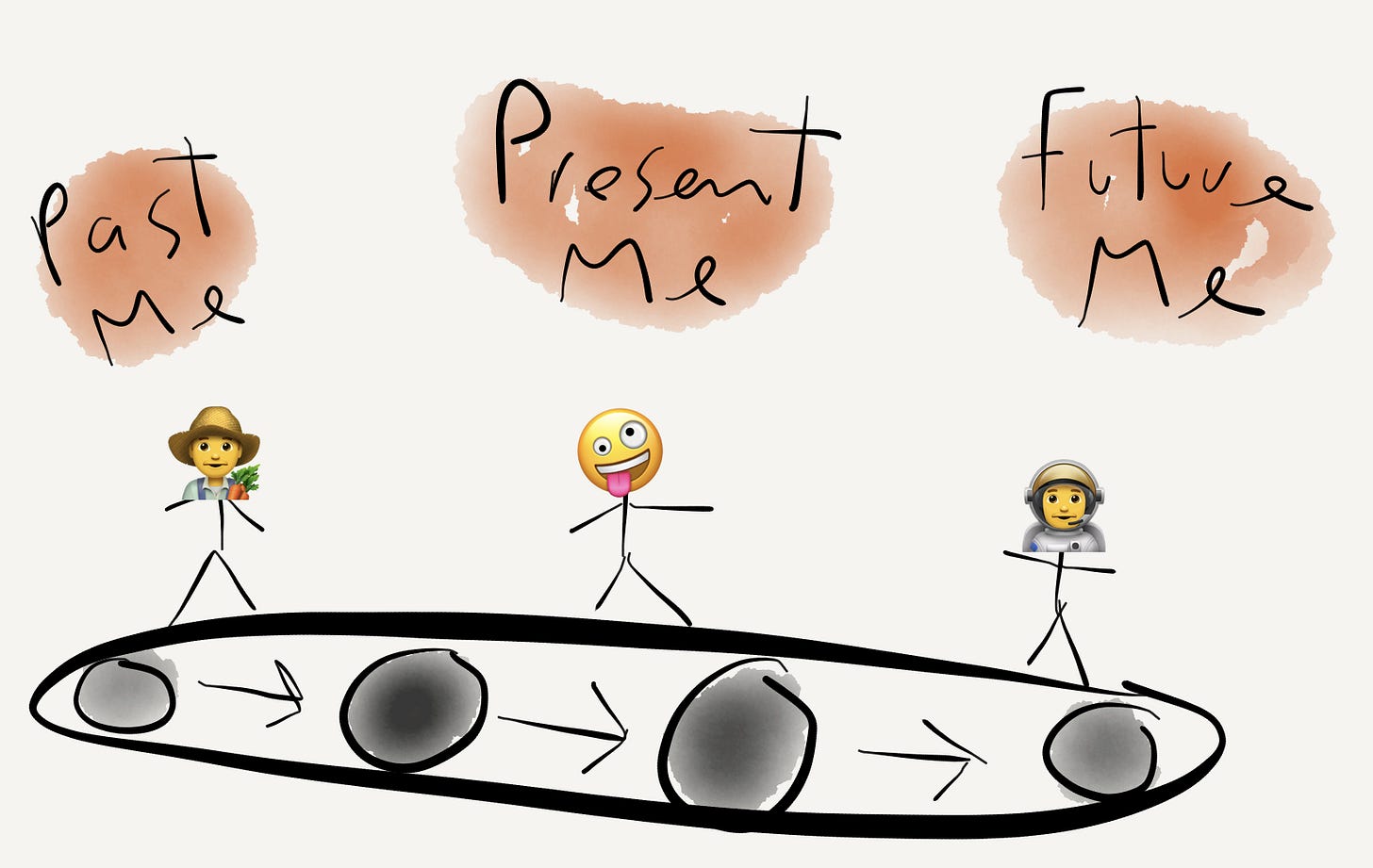
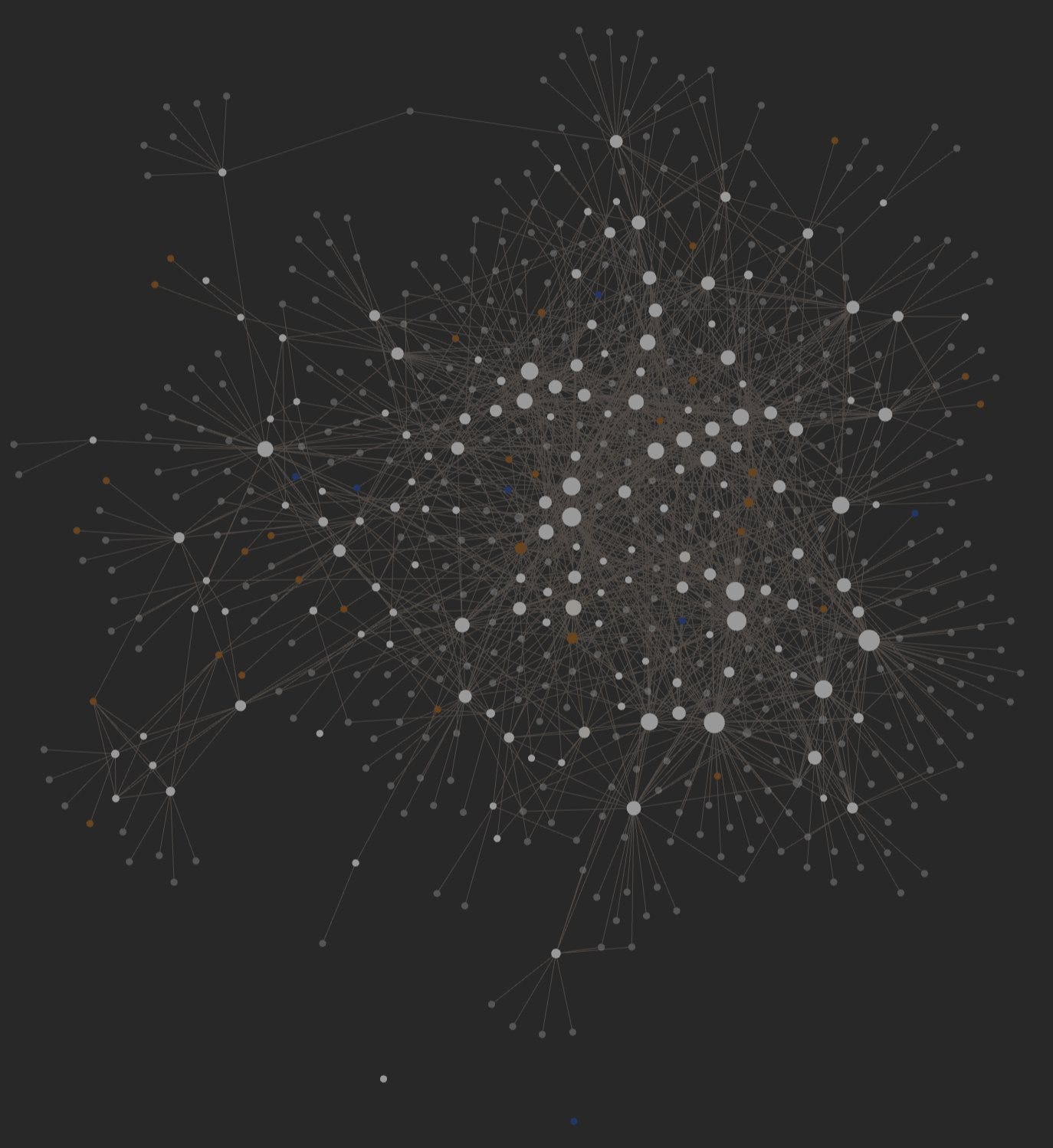

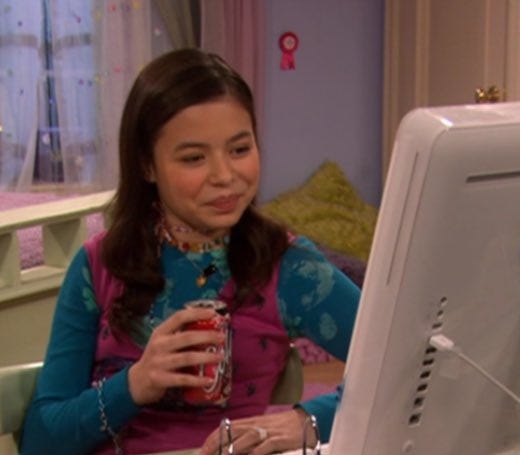


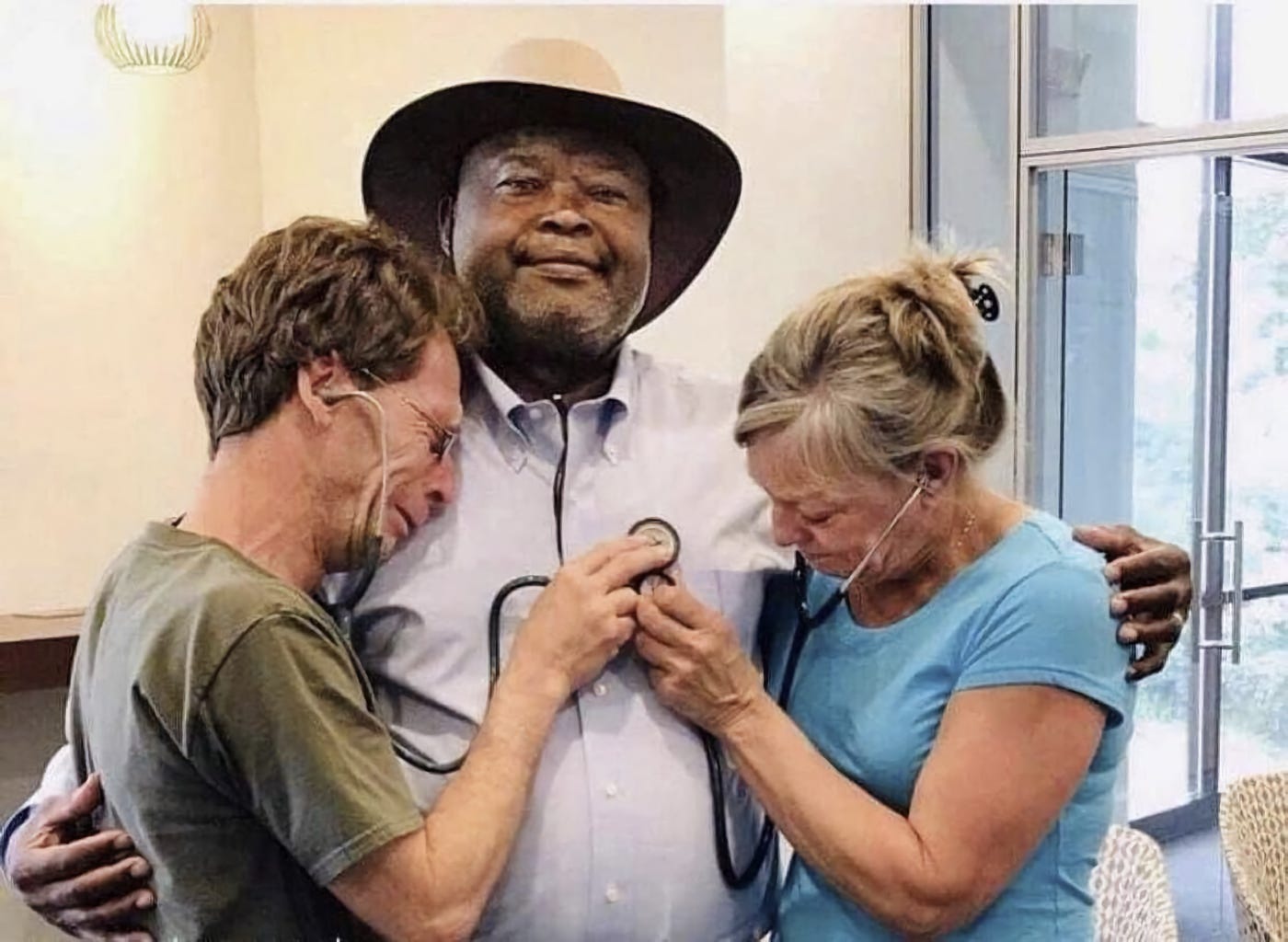

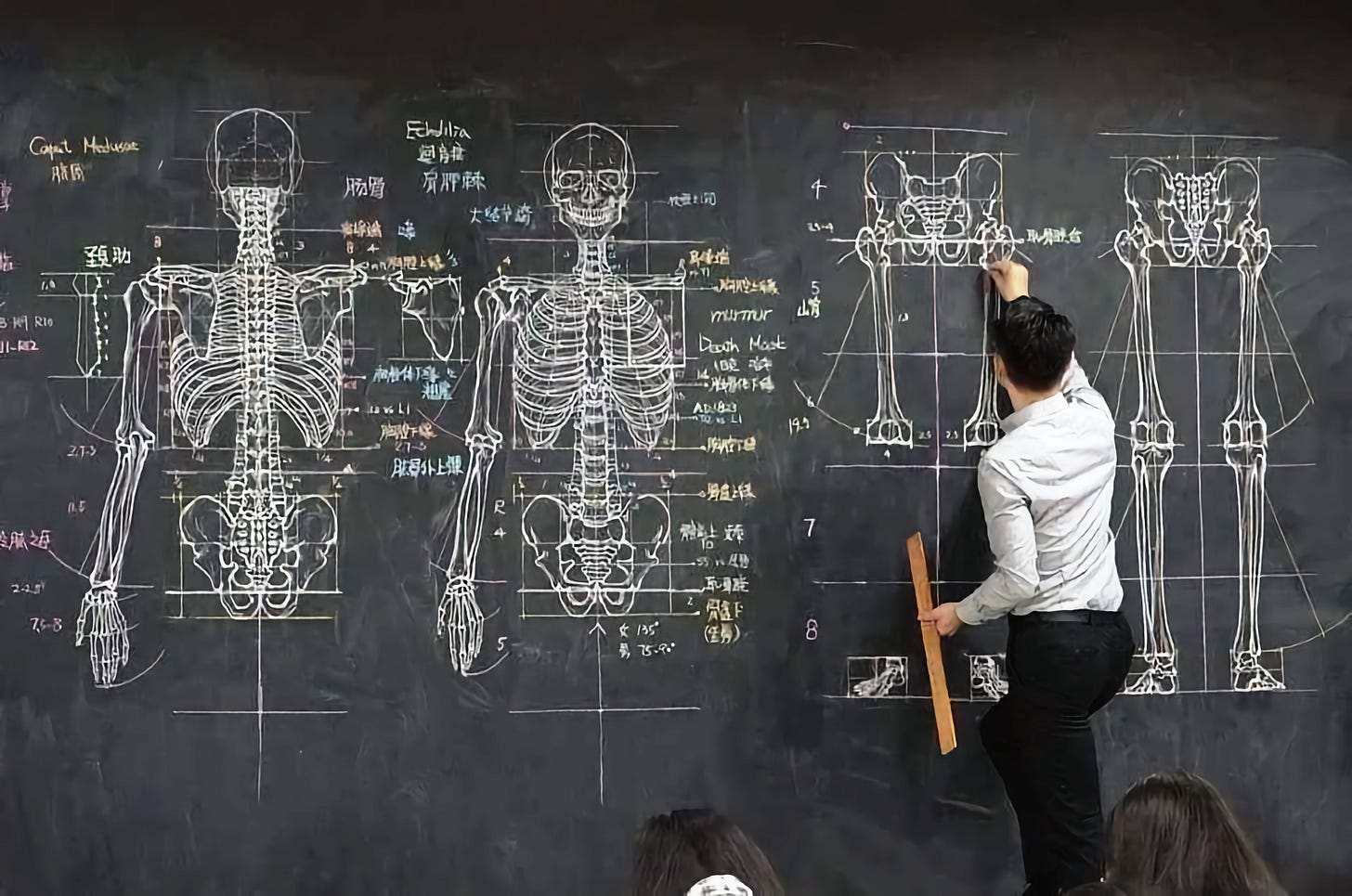
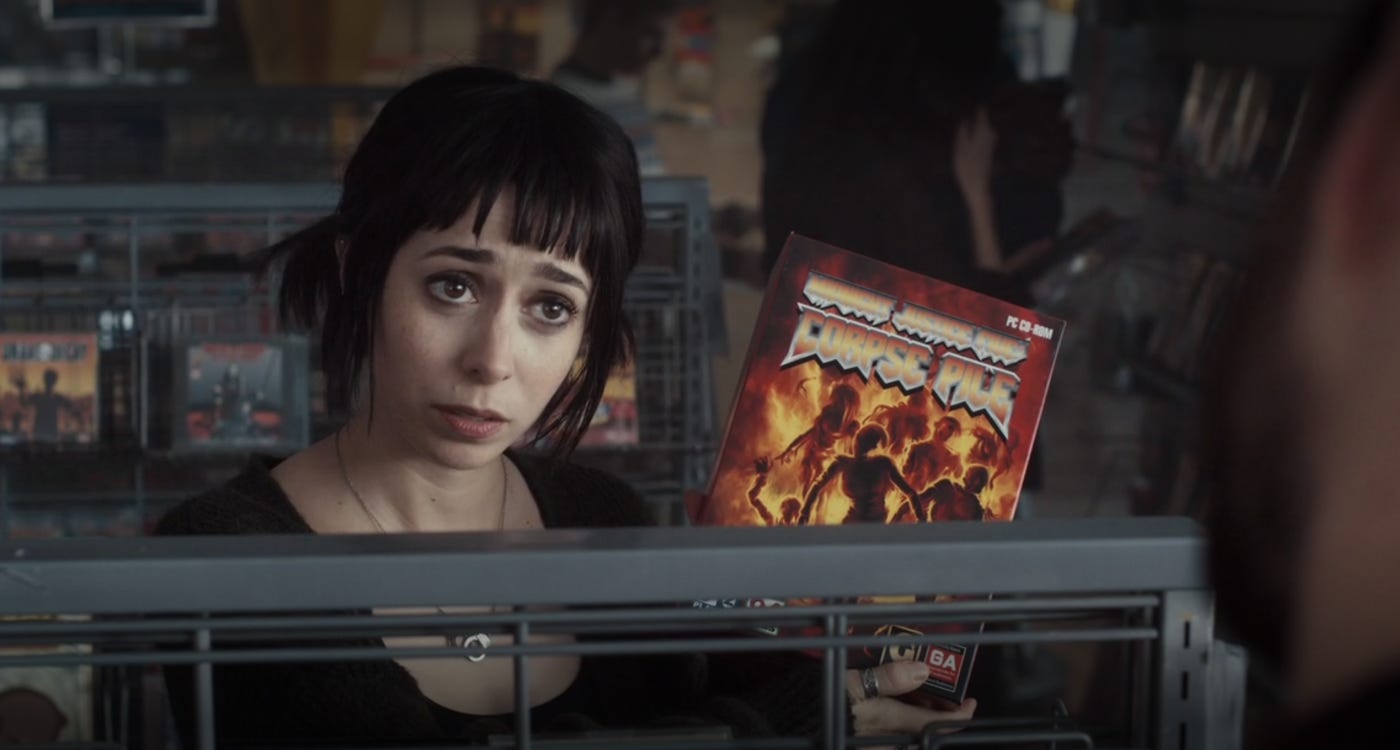
Present me thanks past me for signing up for Liberty's Highlights! Present me encourages present others to improve future others by doing the same!
Loved the Obsidian evolution! Made me think of the literal connections going on in your brain all the time. What would THAT network look like?!
When some of COVID restrictions are lifted, you can see if you can get a tour on an Amazon fulfillment center -yes, those exist in many countries, but no idea about Canada though. You get to see the robots 🤖